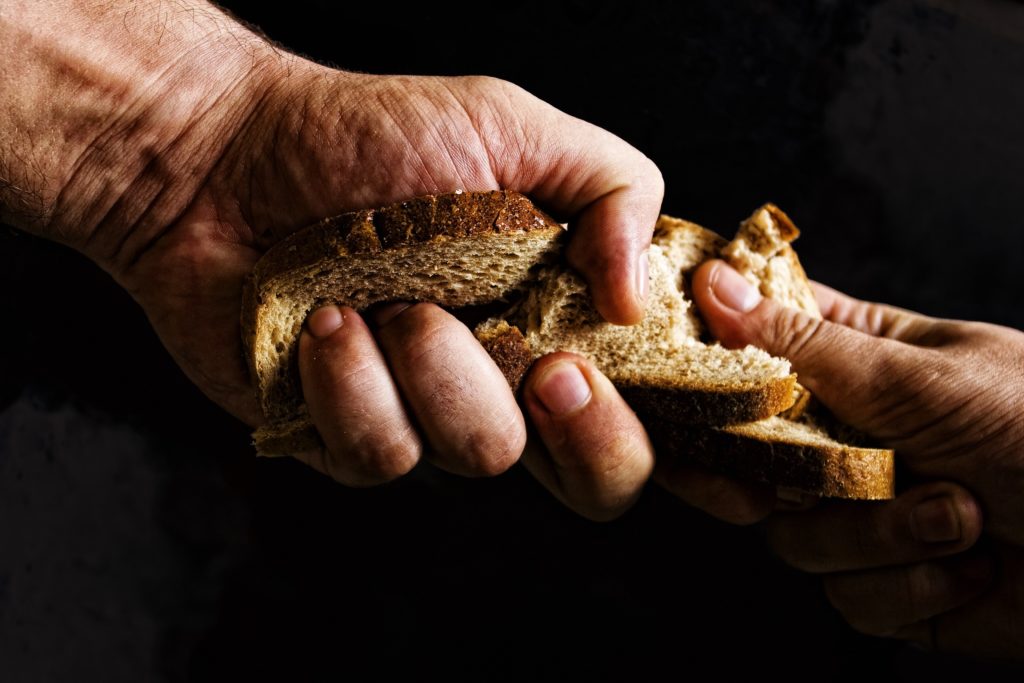The Trump Administration is proposing a new rule that would arbitrarily impose new work requirements and threaten benefits for millions of SNAP recipients.
March 29, 2019

Fortunately, the Supplemental Nutrition Assistance Program (SNAP) helps keeps food on the table for more than 15 million families in need across America. SNAP, formerly known as food stamps, is our nation’s most effective anti-hunger program and is an essential tool in the fight against poverty.
Under current law, SNAP benefits for able-bodied adults without dependents (who are referred to as ABAWDs in policy) are limited to only three months of SNAP in three years unless the recipient works an average of 20 hours per week. However, states can waive those requirements in areas where unemployment is high or jobs are scarce. The Trump Administration’s proposed rule would make waivers unavailable in most areas across the country.
This proposal is arbitrary and not based on any evidence that starving people will help make them more self-sufficient. If this rule is adopted, hundreds of thousands of people will lose the benefits that allow them to access food — a basic necessity for every human being.
It’s a misconception that people who receive public supports do not want to work. Research shows that those SNAP recipients who can work are working, but most cannot consistently reach a 20-hour-per-week minimum. SNAP participants often work in unstable jobs. Low-wage workers, particularly men, with volatile employment and hours are at greater risk for dropping in and out of the labor market. While these breaks are short and infrequent, they would make these individuals more vulnerable under a strict time limit on benefits.
Take, for example, the work experience of one gentleman we met at a food pantry in DuPage County, Illinois, a few months ago. He is a substitute teacher whose work hours vary greatly from week to week. If he does not work at least 20 hours each week, he is eligible for only three months of SNAP benefits every 36 months. Because of the seasonal nature of substitute teaching, he faces an even more dire risk of losing his benefits during the summer months. Under the proposed rule, thousands of people like him in Illinois and across the country will be faced with food insecurity.
Even though the Trump Administration’s proposed rule is supposed to affect only adults, it would undoubtedly also leave children defenseless to hunger. Nationwide, about 4.5 million custodial parents who are low-income or experiencing poverty rely on child support payments from noncustodial parents to feed their children, and about 1.5 million noncustodial parentsuse SNAP. Because noncustodial parents would be subject to strict time limits under the proposed rule, they might need to use income or savings they had earmarked for child support payments to access food instead. This threat to vital benefits would leave children in already food-insecure households at even greater risk of going hungry.
Children who rely on extended family members or family friends for financial support will also be hard-hit. As these adults lose SNAP benefits, they will no longer have the capacity to support extended family members in need, and they might even be forced to turn to already struggling households for food. Moreover, adults who provide informal parenting to the over 2.5 million children impacted by the opioid crisis may also face difficulties proving they have informal dependents. Youth aging out of foster care who desperately need food assistance are also likely to have trouble finding immediate and permanent employment, making them especially susceptible to losing their benefits. In Illinois alone, approximately 1,200 young adults “age out” of the foster care system each year. It’s evident that the proposed rule would not only affect adults, but also inflict harm on our most vulnerable youth.
The proposed rule would impose an outrageous administrative burden on states to properly sort individuals and their eligibility for SNAP benefits. Work requirements policies are notoriously difficult to administer because states often have difficulty distinguishing between individuals who are able to work and those who are unable to work.
Just this week, staff from the Shriver Center spoke with a mother whose family receives SNAP benefits. Her 18-year-old son, a full-time senior in high school, received a SNAP notice saying he needed to start participating in a job training workshop. But as a full-time high school student, he is exempt from those requirements. Regardless, he was incorrectly identified by the local office as an “ABAWD.”
Moreover, many adult recipients of SNAP benefits have significant barriers to work, whether they are ill, disabled, caring for a disabled family member, experiencing homelessness, in a drug or alcohol treatment program, or a victim of domestic violence. These barriers often go unnoticed by the agency tasked with administering these recipients’ access to critical food supports, meaning that bureaucratic errors could cause even more people to erroneously be subject to work requirements under the federal government’s proposed rule.
If implemented, the Trump Administration’s SNAP rule proposal would leave hundreds of thousands of Americans at grave risk of food insecurity. But we can fight back.
Contact your representatives in Congress and ask them to protect against any attempts to slash SNAP funding or impose harsh and unnecessary work requirements.
Together, we can combat these callous attacks on SNAP and make our nation a place where no one has to go hungry.
Amy Eisenstein contributed to this blog.

Shriver Center on Poverty Law
312.854.3375
Our laws and policies must support people by ensuring fair work at a living wage and by providing the income supports families need to be successful.
Systemic inequities and the legacy of structural racism make it harder for low-income people and people of color to achieve financial stability.